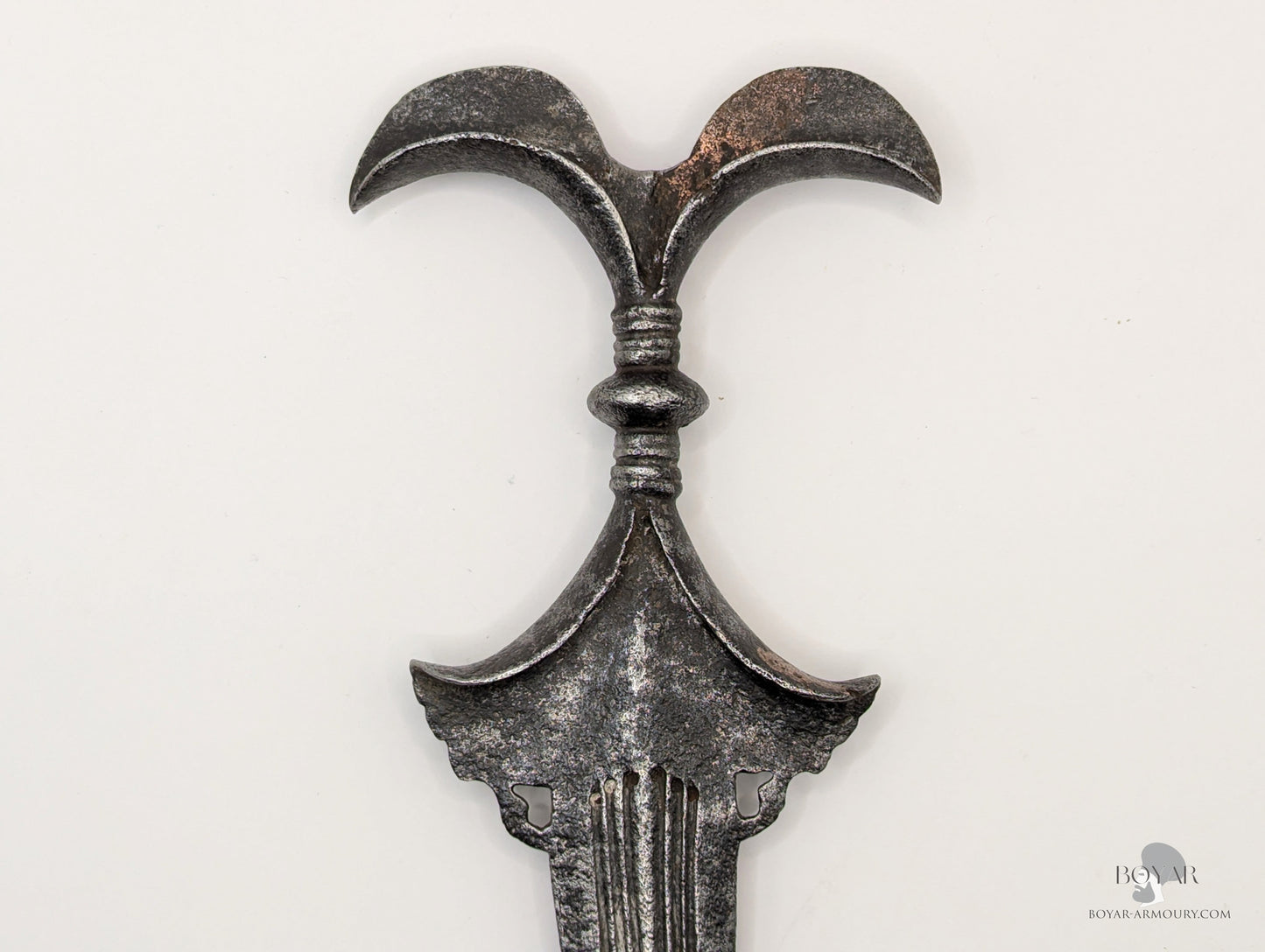Chilanum Dagger, India, 16th Century
Chilanum Dagger, India, 16th Century
Origin: South India | Culture: Indian | Period: 16th Century
Among the most elegant ancient daggers, the chilanum stands out, a term introduced by Lord Egerton in his 1896 publication, Indian and Oriental Arms and Armour. The circa 1590 Ain-I-Akbari showcases an item of similar appearance, referring to it as khapwah.
The dagger is crafted entirely from steel. The slim blade features several profound grooves, showcasing its craftsmanship. Its hilt is distinguished by a central bulge, from which the ends diverge. The top finial appears to be missing.
The painting titled "The House of Bijapur", dating back to around 1680, is held by the Metropolitan Museum under the accession number 1982.213.

The figure represented is meant to portray an early Bijapur leader, suggesting the dagger might predate the era indicated by the painting.
Evidence pointing to this earlier timeline is found in the 1570 A.D. manuscript Nujum al-'ulum, or "Stars of the Sciences," also originating from Bijapur (Chester Beatty Library, accession number In 02). This specific example includes a knuckle guard, but shares a similar hilt design.

Credit for sources: Peter Dekker, Mandarin Mansion.










